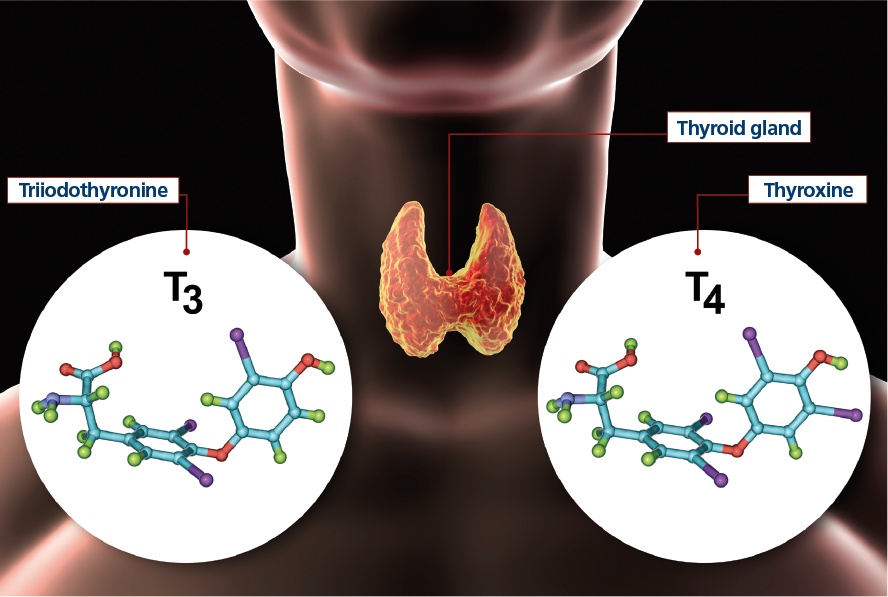Think back to science lessons at school and, specifically, how the tiniest difference to the amount of chemicals used during an experiment could have a huge impact on the reaction. With the endocrine system full of chemical messengers, also known as hormones, it’s little wonder that the smallest change to the levels produced or released into the bloodstream can have a profound effect on someone’s health.

In response to the thyroid-stimulating hormone (TSH) released by the pituitary gland, which is due to stimulation from thyrotropin-releasing hormone (TRH) produced by the hypothalamus, the thyroid gland generates the hormones thyroxine (T4) and triiodothyronine (T3) in a ratio of approximately 80:20. T3 has an important role in regulating the body’s metabolic rate and levels of this hormone in the bloodstream are boosted by the liver converting T4 into T3.
- Hyperthyroidism is sometimes described as having an overactive thyroid gland. Symptoms may include difficulty sleeping, feeling hot and sweaty, weight loss, diarrhoea, anxiety, heart palpitations, muscle tremor and breathlessness. It most commonly results from the autoimmune disorder Grave’s disease, in which antibodies cause the thyroid gland to continually produce T4 and T3 rather than responding to changing levels of TSH, but it can also stem from the thyroid gland becoming inflamed or having too much iodine, whether in the diet or from medication such as amiodarone. This is because this element is an important part of the structure of both thyroid hormones. Around 0.5 to two per cent of the population has hyperthyroidism, with the condition 10 times more common in women than men.
- Hypothyroidism is often referred to as having an underactive thyroid gland. Symptoms include tiredness, feeling cold, weight gain, low mood, constipation, slow heart rate and poor concentration and memory, as well as a deterioration in the condition of skin, hair and nails: basically the opposite of hyperthyroidism. Again, an autoimmune problem is often the cause, this time a condition called Hashimoto’s disease. But the functioning of the thyroid gland can also be slowed as a result of medication such as amiodarone or lithium, or following surgery or treatment for a thyroid problem such as cancer or hyperthyroidism. Around one to two per cent of people in the UK have hypothyroidism. As with hyperthyroidism, women are 10 times more likely to be affected than men.
